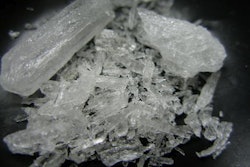General Electric this week announced plans to build two factories in Huntsville, Alabama, that will supply advanced composite materials to GE businesses and the U.S. Defense Department.
The $200 million facilities will particularly supply raw materials called ceramic matrix composites to the nation's first CMC factory, a GE plant in Asheville, North Carolina.
Despite their name, ceramic matrix composites won't shatter like a ceramic mug dropped on the floor. CMCs are as tough as metals but are two-thirds lighter and function at far higher temperatures.
By 2020, the material could allow engineers to increase jet engine thrust by 25 percent while reducing fuel consumption by 10 percent.
Sanjay Correa, vice president of the company's CMC program, said that officials expect those engines to prompt a 10-fold increase in CMC demand over the next five years.
“Opening the new plants in Alabama is a key step in building up the supply chain we need to make CMC parts in large volumes,” Correa said.
The materials were previously difficult to produce and confined to spaceflight and fighter jets. GE's process, however, embeds extremely thin silicon carbine fibers in a silicon carbide matrix and covers the material with a proprietary coating.
In addition to the Asheville factory, GE's previous CMC "lean labs" in Delaware and Ohio are also looking into new applications for the materials.
The materials could enable more efficient power generation, as well. GE engineers previously placed CMCs into the hottest components of a gas turbine and ran it for thousands of hours without incident.






















